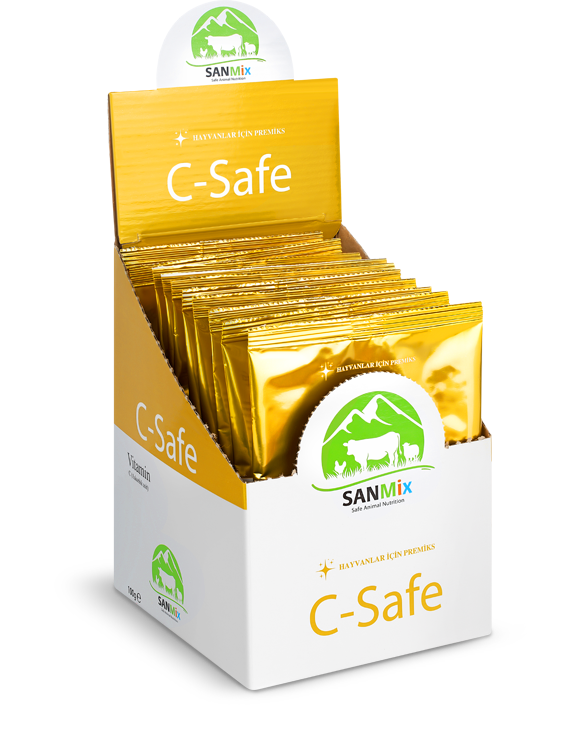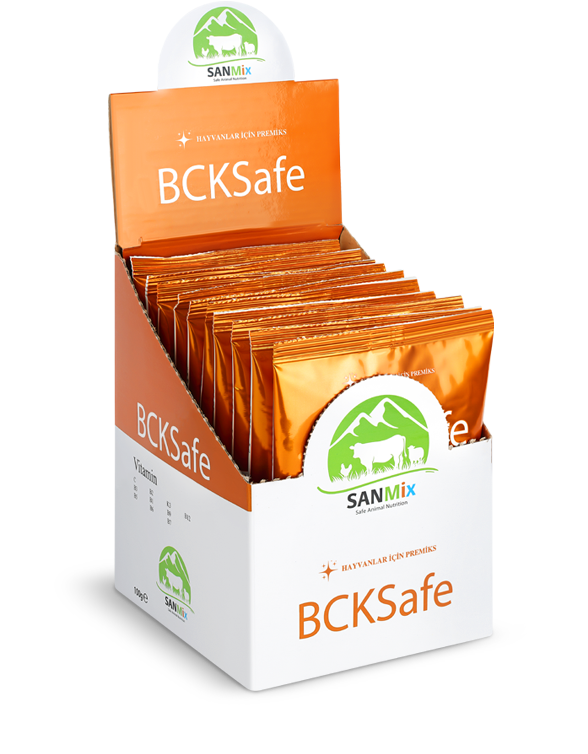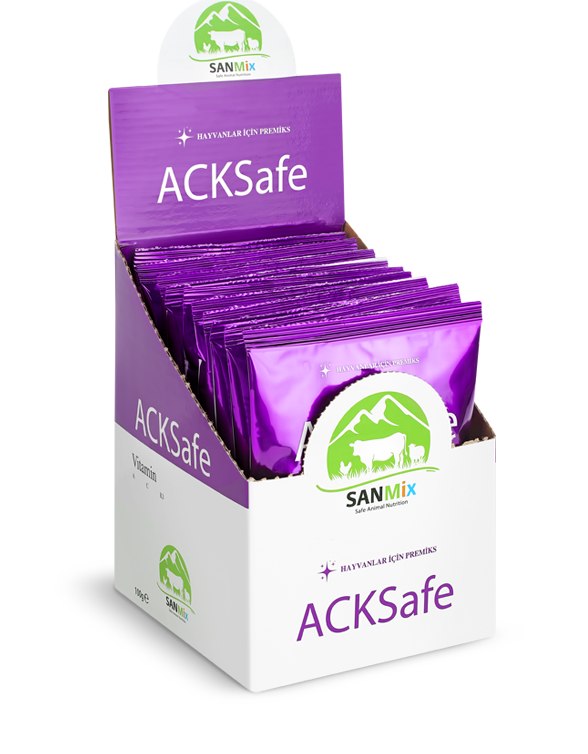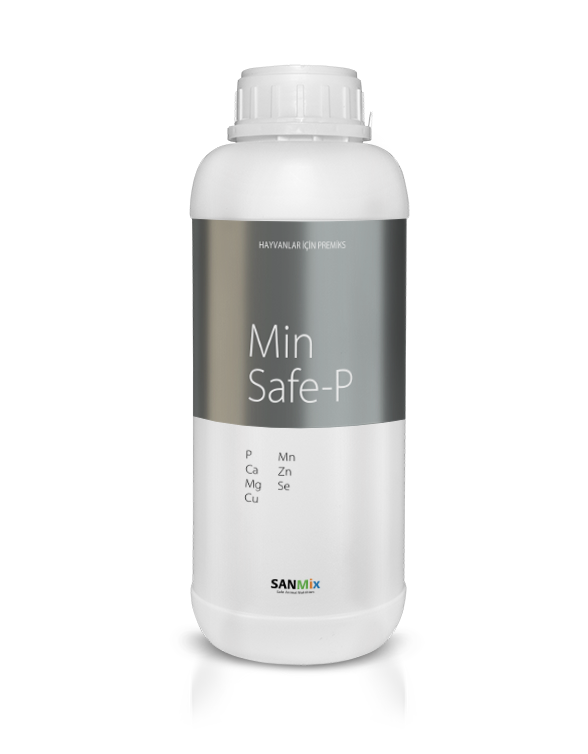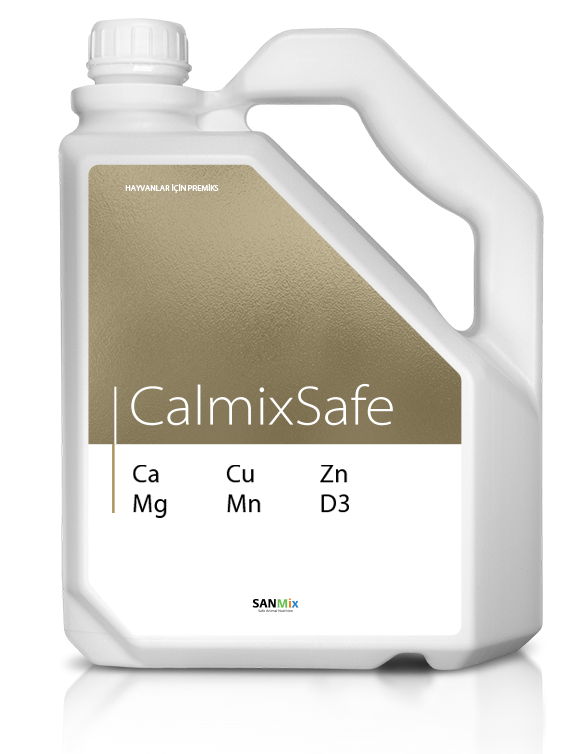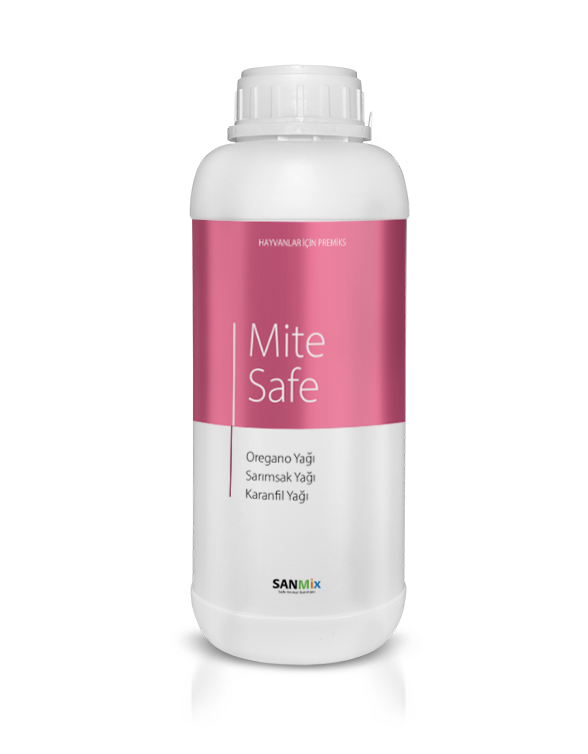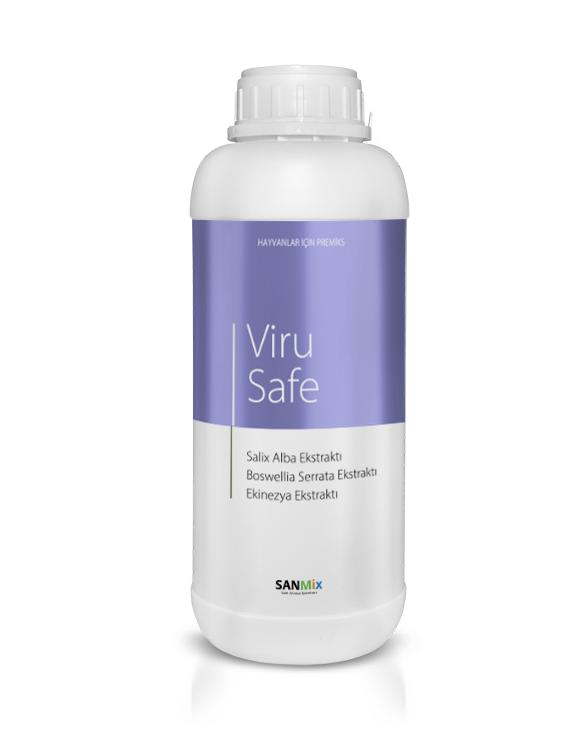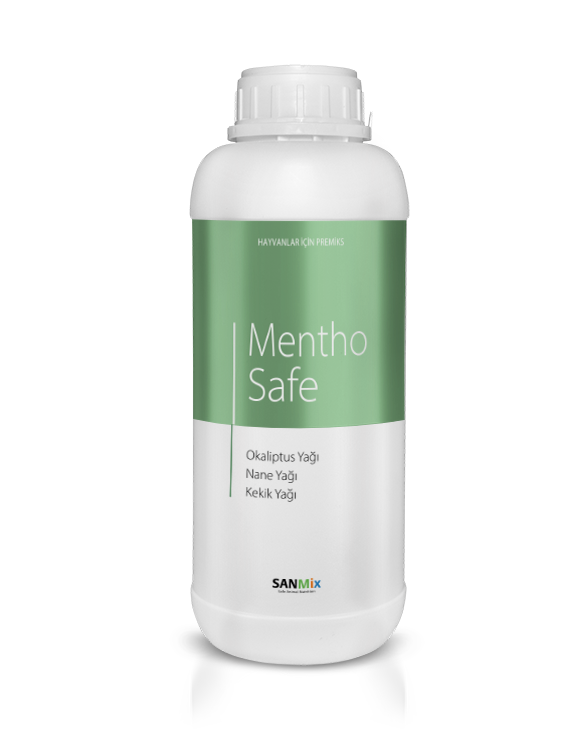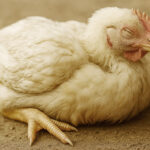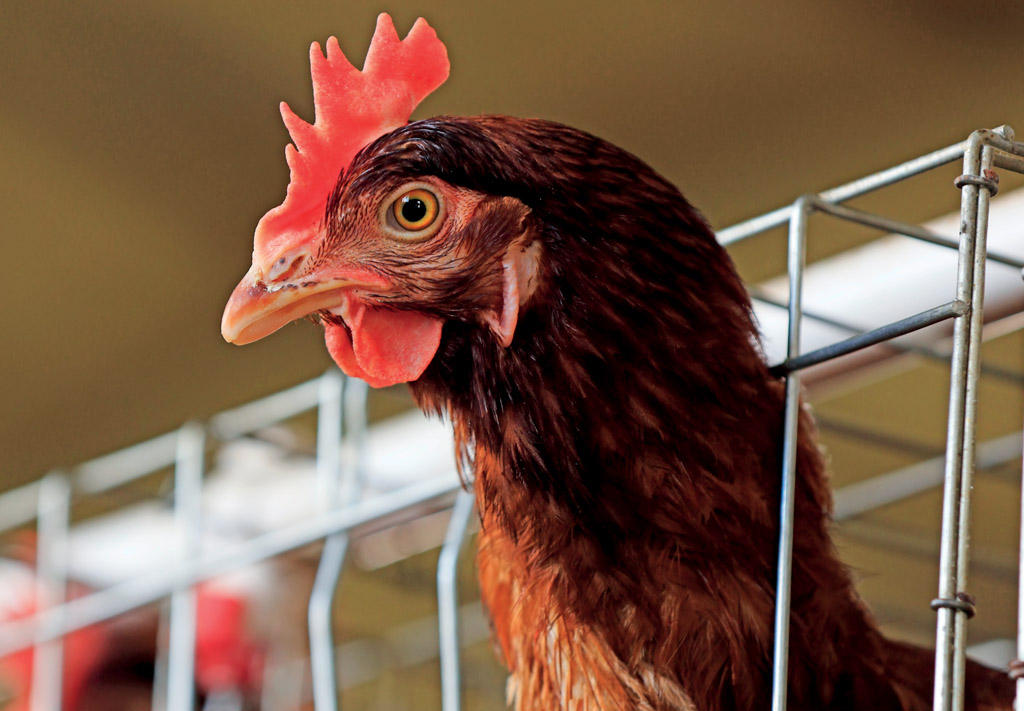In poultry farming, the liver is often overlooked — until things go wrong. While broilers have a short lifespan, layers and breeders live much longer and place sustained metabolic demand on their organs, especially the liver. This silent workload builds gradually. Unless actively supported, liver stress can compromise the bird’s long-term productivity and welfare without showing early symptoms.
Why Liver Health Matters
The liver plays a central role in:
-
Fat metabolism and yolk formation
-
Detoxification of feed contaminants and drugs
-
Vitamin storage and nutrient conversion
-
Hormonal regulation
Over time, especially in high-performing birds, this workload becomes a burden. When liver function is compromised, it can lead to:
-
Drop in egg production
-
Pale or off-color combs and wattles
-
Sudden deaths or increased culls
-
Fatty liver hemorrhagic syndrome (FLHS)
In layers and breeders, even small disruptions in liver function can lead to significant declines in egg quality, hatchability, or general flock uniformity. Early nutritional support can mitigate these risks.
Risk Factors for Liver Stress
Several conditions increase the risk of liver damage:
-
Excess dietary fat or imbalanced energy-protein ratio
-
Mycotoxins in feed
-
Lack of choline, methionine, or vitamin E
-
Antibiotic overuse or chemical residues
-
Heat stress, which disrupts metabolism
Breeders and layers under intensive production are especially vulnerable.
Stressors rarely act alone. More often, it's a combination of feed quality, environmental conditions, and metabolic load that pushes liver function past its limit.
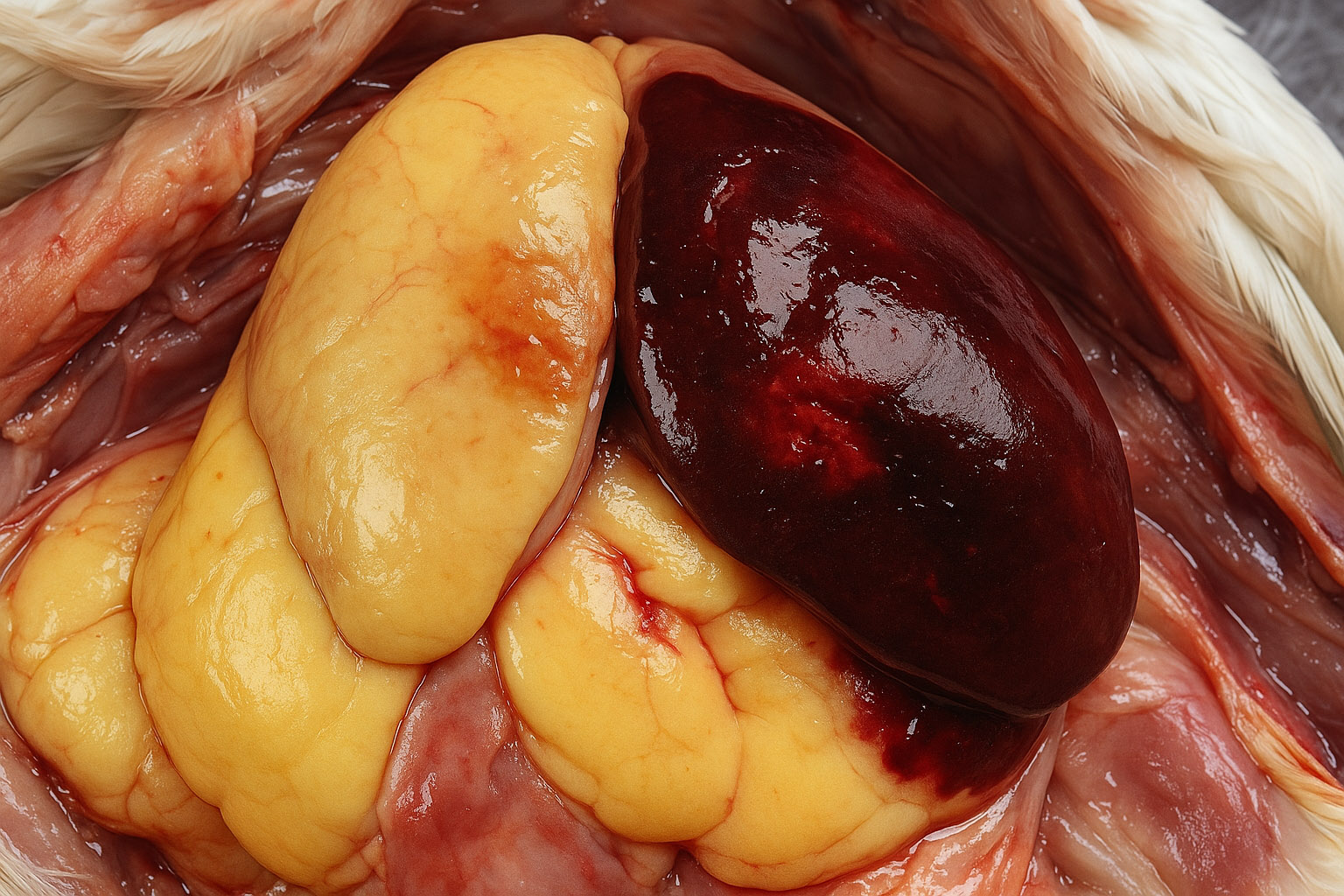
Fatty Liver Hemorrhagic Syndrome - FLHS causes fatty accumulation and internal liver bleeding in laying hens under metabolic stress.
“Fatty liver hemorrhagic syndrome is a metabolic condition commonly observed in laying hens and is characterized by sudden death due to liver rupture leading to internal bleeding.”
Supporting Liver Health Through Nutrition
Prevention is key. Strategies include:
-
Hepatoprotective additives, such as silymarin, betaine, choline chloride
-
Antioxidants, especially natural vitamin E and selenium
-
Toxin binders, to reduce liver load
-
Balanced energy/protein ratios and avoiding excess fat
Maintaining good liver function supports consistent egg production, reproductive performance, and longevity.
For stronger liver support, nutritional strategies often include bioactive plant extracts and functional nutrients with proven hepatoprotective properties. Preventive feeding is especially crucial in long-cycle birds.
Conclusion
In layers and breeders, liver damage is a slow and silent threat — but one that can be managed with proactive nutrition. A strong liver means a longer, more productive life.
By making liver support a routine part of flock management, producers can reduce economic losses, improve welfare, and extend the productive lifespan of their birds.
